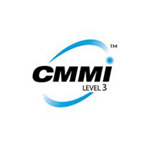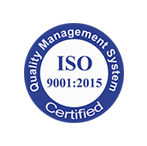Industry 4.0 and Internet of Things (IOT) are the two most talked about words in the digital world these days. Let’s talk about Industry 4.0 first. So, this term denotes to the leaning towards automation and data exchange in the manufacturing processes in the industry. Being also christened as the subset of fourth industrial revolution, it includes smart manufacturing and smart factory. Now, talking about the Internet of Things (IoT), it is, in simple language, the addition of internet connectivity into physical objects that come in use every day. In standard language, it is the integration of digital sensors and networking technologies into the physical objects in the analog world.

Well, here’s an interesting fact, merely 20 percent of the people understand the meaning of Internet of Things (IoT) yet around 70 percent of them own an IoT device. It was also found out that by 2020, 30 percent of the interactions with the technology will be in form of conversations with smart machines. One of the biggest examples of this is Amazon’s Alexa-powered devices including the Echo smart speaker. Industry 4.0 is hugely dependent on Internet of Things (IoT) to perform digital manufacturing, and some of the very smart businesses leverage the data that both the IoT and Industry 4.0 produce to enhance their profit and skills. They play a substantial role in manufacturing industry by rapidly designing, modifying, creating, and customizing things in the real world, while lowering costs and reacting to changes in consumer preferences, demand, the supply chain, and technology.
Besides helping the manufacturing sector immensely, IoT also helps municipals in several ways like use in building temperature control systems, sensor enabled trucks and digital manufacturing control systems. Tech giant Intel has made an extensive video that beautifully explains the additional uses of IoT. Industry 4.0, on its part, helps enormously in generating massive bundles of data. When this data is analyzed and processed, it produces great insights and helps greatly in making a decision and coming to the conclusion. Additionally, it also helps in creating a healthy and competitive atmosphere. The thing to note here is that data should be analyzed very carefully and relevant information should be personalized as per the requirement.
Iot comes handy in the management of supply chain as it tracks and traces the inventory system on a global scale. The IoT devices also make the documentation process pretty easy as no paperwork is needed instead an Enterprise resource program (ERP) takes care of all the operations. It enables the owner of a business to view the status of the assets from anywhere and at any moment of time with relatively faster response from the smaller dealers. Preventative maintenance can be scheduled in advance on the basis of actual wear and it can result in the saving of lot of time. The diagnostic capabilities of the process and equipments can be accentuated to a bigger level by IoT. Furthermore, performance can be viewed and assessed real time.
Today, IoT is employed by several big companies in the country such as Tech Mahindra, TCS and Infosys. We at Yeppar also offer these services in an affordable manner so that the business flourishes at an unprecedented rate. Our IoT applications cover the automobile manufacturers, real estate manufacturers and providing training to employees in any manufacturing sector. Our services are transparent and trustworthy, while they are extremely user-friendly and simple to use even for a non-technical individual. There is no involvement of a middle-man and we also provide support for seamless integration of the physical devices used in the business into IoT. There is no dearth of experience in this field as we have been providing such solutions for many years now.
Nearly 66 percent of the manufacturing startups have stated that IoT plays a critical role and it can lead to an advantage amidst the highly competitive atmosphere. Also 76 percent of the startup owners in manufacturing have revealed that the presence of IoT accentuates insight into customer preferences and behaviors. With all these stats, it is safe to assume that IoT has become an integral part of modern and contemporary manufacturing industries. Also, the noticeable thing here is that while we have listed several benefits of this tech, we have not been able to write down even one shortcoming or disadvantage of IoT in manufacturing industry. Rightly so, because it involves zero risk factor.












